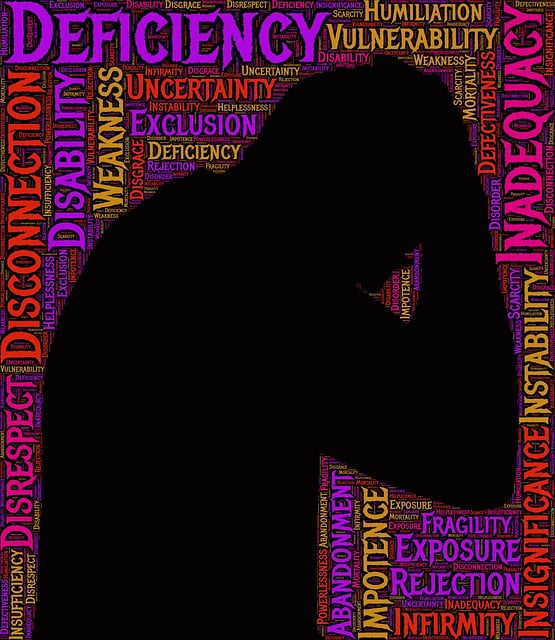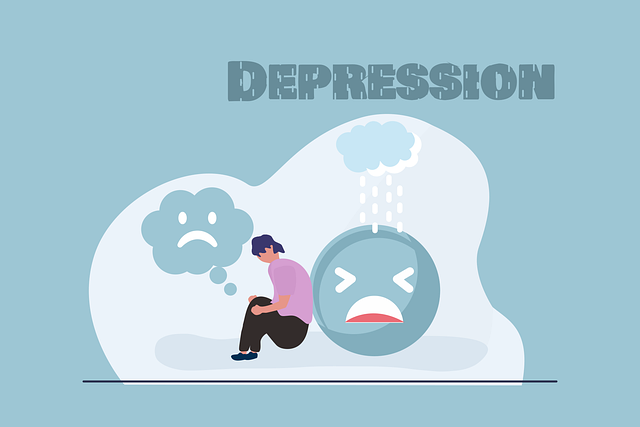Denver Young Adults Therapy emphasizes the critical role of risk assessment in delivering effective mental health services. By analyzing client vulnerability, professional boundaries, confidentiality, and self-care, therapists develop robust coping skills and burnout prevention programs. They adopt a nuanced approach that balances structure and flexibility, incorporating evidence-based stress reduction methods to address elevated stress and burnout levels among young adults facing academic pressures, identity formation, social media influence, and familial expectations. Ethical considerations are paramount, especially in navigating confidentiality and self-harm scenarios while fostering trust and promoting client autonomy. Continuous improvement through evidence-based practices, patient feedback, and data-driven decision-making ensures a dynamic risk management planning process tailored to individual well-being, ultimately providing comprehensive and effective interventions for Denver Young Adults.
In the dynamic field of mental health, risk assessment is a cornerstone of safe and effective practice. This comprehensive guide explores essential aspects of risk management tailored to Denver Young Adults Therapy professionals. From understanding the nuances of risk assessment in mental health to recognizing unique risks specific to young adults, we delve into ethical considerations and practical strategies for conducting thorough evaluations. Additionally, we emphasize continuous improvement through monitoring as a vital component of high-quality, evidence-based care within the Denver community.
- Understanding Risk Assessment in Mental Health
- Unique Risks Faced by Denver Young Adults Therapy Professionals
- Ethical Considerations for Risk Management
- Practical Strategies for Conducting Effective Assessments
- Continuous Improvement and Monitoring in Mental Health Practice
Understanding Risk Assessment in Mental Health

Risk assessment is a cornerstone of effective mental health practice, especially when working with vulnerable populations like young adults in Denver and beyond. It involves meticulously evaluating potential hazards and their likelihood to cause harm within therapeutic settings. By adopting structured approaches, mental health professionals can identify risks related to client vulnerability, professional boundaries, confidentiality, and self-care—all crucial aspects of providing quality care.
This process goes beyond merely identifying threats; it empowers therapists with the knowledge to implement robust coping skills development programs and burnout prevention strategies for healthcare providers. Effective risk management planning for mental health professionals integrates these measures into daily practice, fostering a safe and supportive environment for both clients and practitioners.
Unique Risks Faced by Denver Young Adults Therapy Professionals

Denver Young Adults Therapy professionals face unique challenges due to the sensitive nature of their work and the particular demographics they serve. While helping young adults navigate mental health issues is incredibly rewarding, it’s also demanding. This demographic often grapples with pressures related to academic performance, identity formation, social media influence, and familial expectations—all while dealing with emerging mental health concerns. These complex factors can contribute to elevated levels of stress and burnout among therapists.
Additionally, working with young adults requires a nuanced approach that considers their developmental stage. Therapists must be adept at balancing structure and flexibility, ensuring safe spaces for expression while also encouraging independence and self-reliance. Incorporating evidence-based Stress Reduction Methods and fostering Positive Thinking can be crucial tools in mitigating these risks. Enhancing Mental Health Awareness within the community further supports Denver Young Adults Therapy professionals in their efforts to create a healthier environment for their clients.
Ethical Considerations for Risk Management

In the realm of mental health care, especially when working with vulnerable young adults as in Denver Young Adults Therapy, ethical considerations play a pivotal role in risk management. Professionals must navigate complex dilemmas that impact not just client safety but also their well-being and therapeutic outcomes. For instance, maintaining confidentiality while recognizing signs of self-harm or suicidal ideation requires delicate handling. Effective communication strategies are paramount here; therapists should be adept at balancing open dialogue with the need to protect privacy.
Ethical practices involve a multifaceted approach. This includes fostering an environment of trust, ensuring informed consent, and promoting client autonomy. By integrating these principles, mental health professionals can enhance their ability to implement stress reduction methods and support self-esteem improvement. Ultimately, these ethical considerations are not just guidelines but essential tools to mitigate risks and ensure the best possible care for young adults in therapy.
Practical Strategies for Conducting Effective Assessments

Conducting effective risk assessments is a cornerstone of responsible mental health practice, especially when working with vulnerable populations like Denver Young Adults. Professional therapists must employ practical strategies that go beyond surface-level evaluations. This involves integrating thorough communication strategies to gain insights into clients’ emotional states and potential triggers. Open dialogue encourages patients to express their feelings honestly, enabling therapists to identify subtle cues that may indicate escalating risks.
Additionally, mastering mood management techniques is vital for mental health professionals. By recognizing and responding appropriately to shifts in client moods, therapists can prevent crises. Risk Management Planning becomes a dynamic process where professionals adapt strategies based on continuous assessment. This proactive approach ensures that each interaction contributes to a comprehensive understanding of the individual’s well-being, ultimately facilitating more effective interventions at Denver Young Adults Therapy.
Continuous Improvement and Monitoring in Mental Health Practice

In the dynamic field of mental health care, continuous improvement and monitoring are vital to ensure optimal patient outcomes. Denver Young Adults Therapy recognizes that staying at the forefront of evidence-based practices is essential for effective treatment. Regularly reviewing and updating clinical protocols allows professionals to adapt to emerging research and best practices, enhancing the quality of services provided. This ongoing process involves several key components: actively seeking feedback from patients and colleagues, participating in professional development opportunities, and implementing data-driven decision-making strategies.
By fostering a culture of continuous improvement, mental health providers can proactively manage potential risks and challenges, such as burnout prevention strategies for healthcare providers. Additionally, addressing Mental Illness Stigma Reduction Efforts and incorporating Cultural Sensitivity in Mental Healthcare Practice are integral parts of this process. These initiatives not only improve patient experiences but also contribute to creating a more inclusive and effective therapeutic environment.
Mental health professionals in the Denver Young Adults Therapy setting face unique challenges that require robust risk assessment strategies. By understanding the ethical implications and implementing practical, evidence-based methods, therapists can ensure a safe and effective environment for both practitioners and clients. Continuous improvement through monitoring and adaptation is key to navigating the dynamic nature of mental health care, fostering a supportive culture that benefits the entire Denver Young Adults Therapy community.














